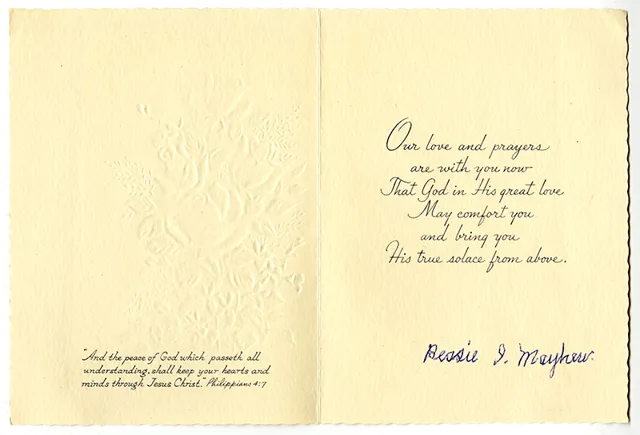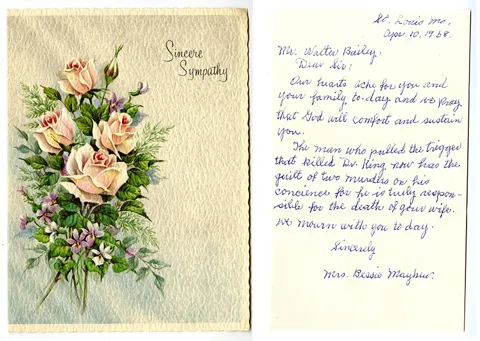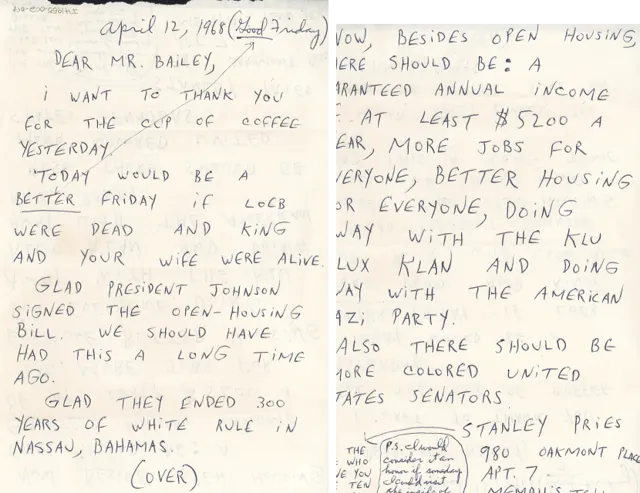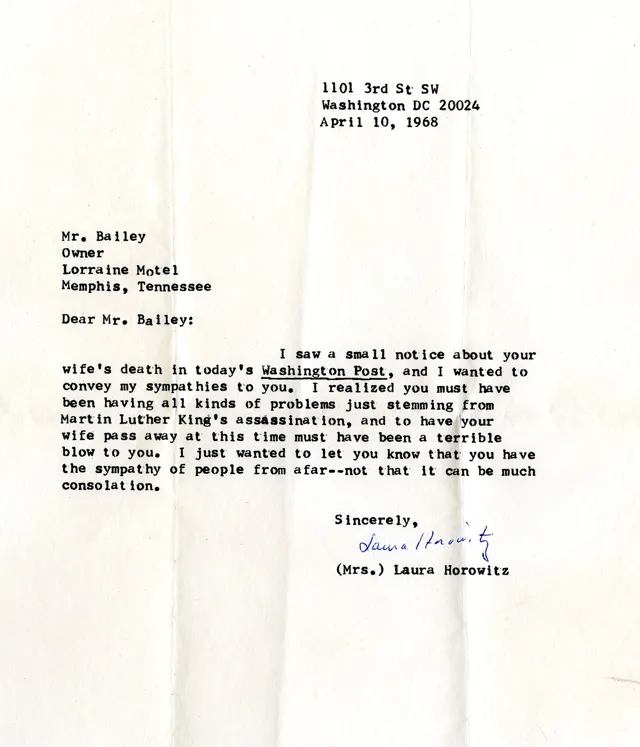By Dr. Noelle Trent
Director of Interpretation, Collections and Education
In 2020, we respond to news and events within seconds on Social Media; however, in 1968 the American public responded to news and events through letters and telegrams. Letters and telegrams are written communications which required deliberate and intentional action. For a telegram, a person would develop a message, head to a telegraph office like Western Union where they would pay for the message that would transmit via encrypted Morse code, and (in most cases) hand delivered to the recipient. A telegram could be expensive. A letter was an inexpensive option. Letters could be revised multiple times before sending. They also allowed the sender to do something very few of us do today — sit with our thoughts to develop a deliberate and intentional message.
The news of Dr. King’s death spread quickly nationally and internationally, and the public responded. In our collections, we have a number of letters written in the wake of Dr. King’s death. These letters are samples of the various responses sent to Mr. Walter Bailey. The senders offer their sympathy not only about Dr. King’s death, but also the sudden passing of Loree Bailey, Walter’s wife and co-owner of the Lorraine Motel.
Some letters offer thoughtful, well-developed prose, while others offer sympathy among a stream of conscious prose invoking a number of conspiracy theories. The letters offer little information on their authors. Our information comes from what is written on the page. We may never know what motivated these individuals to express their sympathies to Mr. Bailey. We may never know their race and socioeconomic background.
We may never know what events in the letter writers’ own lives helped them understand the deep loss of a spouse or a loved one. Despite these ambiguities, these letters indicate the profound extent to which people were affected by the events of April 4, 1968.



